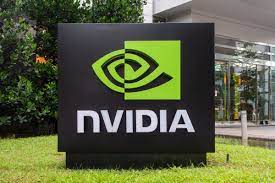
Nvidia’s Sovereign AI Proposal Gains Traction Among EU Leaders

 :
| Updated On: 17-Jun-2025 @ 2:56 pm
:
| Updated On: 17-Jun-2025 @ 2:56 pmSHARE
Since 2023, Nvidia CEO Jensen Huang has been advocating for the concept of “sovereign AI”—the idea that each nation should build AI systems grounded in its unique language, culture, and values. This vision is now resonating with European leaders, who are growing increasingly concerned about their dependence on U.S. tech giants such as Google, Amazon, and Microsoft. Huang’s recent tour of major European capitals—London, Paris, and Berlin—underscored both Europe’s AI infrastructure gap and Nvidia’s commitment to supporting local development.
In Paris, Huang declared plans to invest billions in European AI development, urging urgency in the region’s approach to AI. He emphasized that while Europe is behind the U.S. and China, it has the potential to catch up if decisive action is taken. His statements came as British Prime Minister Keir Starmer announced £1 billion ($1.35 billion) in funding to scale up computing infrastructure, positioning the UK as a global AI leader. Likewise, French President Emmanuel Macron labeled AI infrastructure development as part of France’s “fight for sovereignty” during the VivaTech conference. Germany also joined the movement, with Chancellor Friedrich Merz calling Nvidia’s partnership with Deutsche Telekom to build an AI cloud platform a critical step for the country’s digital and economic future.
Europe currently lacks large-scale AI infrastructure and is mostly dependent on U.S.-based companies. Native startups like Mistral, a French AI company, are rare but gaining prominence. At VivaTech, Mistral CEO Arthur Mensch, sitting beside Huang, expressed optimism for European tech sovereignty, describing the vision as a “gigantic dream.”
To support this goal, Mistral and Nvidia are collaborating to build a major AI data centre in France that will initially use 18,000 of Nvidia’s latest AI chips. The centre will serve as a foundation for Europe’s AI ambitions, with plans for expansion in 2026. Meanwhile, the European Union has announced a $20 billion initiative to construct four AI “gigafactories” aimed at reducing dependency on U.S. technologies. According to EU officials, Nvidia is allocating a portion of its chip production for these European facilities, highlighting its strategic role in the continent’s AI future.
Nvidia’s GPUs (Graphics Processing Units) are essential for AI development and data centres globally. The company is seeking to solidify demand for its chips by integrating them into Europe’s sovereign AI infrastructure, even as the continent pursues technological independence.
Despite the enthusiasm, there are significant challenges. One of the most pressing is power consumption. Data centres already account for 3% of the EU’s electricity use, a figure projected to rise sharply due to AI demands. Moreover, while U.S. hyperscalers like Amazon and Google can invest $10–15 billion per quarter, European companies like Mistral operate on far smaller budgets—Mistral has raised just over $1 billion in total. Industry experts like Capgemini’s Pascal Brier stress that while Europe should continue investing, it must also recognize its limitations.
Mistral has already launched several AI models used by businesses, though many companies still blend them with models from OpenAI, Anthropic, or Meta. Even with these constraints, Europe’s push for sovereign AI marks a bold step toward digital self-reliance.
Contact Us
House. No. : 163, Second Floor Haridev Rd, near Puberun Path, Hatigaon,Guwahati, Assam 781038.
E-mail : assaminkcontact@gmail.com
Contact : +91 8811887662
Enquiry
×
Reporter Login
×